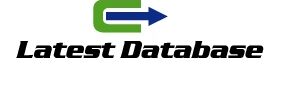If you capture, manage or store personal data of others, you must make sure to comply with the LOPD or also known as the Data Protection Law china business email database . You may believe that you do not need it and that, given the size of your business, there is no risk in staying out of this legal requirement. That belief can generate many complications and deprive you of many other benefits that you need to know about the LOPD.
The origin and meaning of the LOPD
I want you to think a minute about what’s next.
In 1986, only 1% of the information was digitized, the possibility of seeing the information of a small business compromised was almost non-existent and the possibility of using that information for purposes that could be contrary to the interests of those affected, very remote
Today, the new digital environments suppose a massive and constant flow of personal data that seriously compromises their confidentiality, without going into all the social engineering deployed to vampirize that data and do data traffic business.
In 1986, the media that stored your data was scarce, now your information is infinitely more exposed, as well as your privacy. If you already saturate us with intrusive advertising, imagine what your life would be like if the LOPD did not prohibit the sending of commercial communications without consent, if anyone could use your personal information as they pleased.
The risks and threats have also multiplied and you can not think that you can manage personal information like the milkman in the notebook and the pencil in your ear.
Is it a little naive do not you think?
Nor can you think that the data you manage belongs to you and therefore, you can do with them what your inspiration dictates or your pocket, a common enough belief that a well-known “guru blogger” recently proposed to his followers to sell leads that had not been converted, a council divorced from legality, but if you do not know the LOPD, it is possible that you screw up the bottom, come on, that the sanction will not be paid by the ingenious blogger.
You must know that you are only responsible for storing them, managing them and guaranteeing their confidentiality, the sovereignty of personal information belongs only to the owner of that data. Do not forget this.
The Data Protection Law only a legal requirement?
The first thing you should know is that we are talking about something very concrete and nothing Martian:
The protection of personal data of citizens like you and me. A fundamental right that we should all defend.
You may find it somewhat abstract, but it is about the right to honor, personal intimacy, and the image of physical persons.
The objective of the LOPD is that each person can:
Decide on the use and destination of the information that belongs to you.
Decide who and what personal information you want to provide.
Decide until when you can use your data.
Allow each person to access, rectify, oppose or cancel their personal information.
This friend is informative self-determination and if they already abuse our trust, imagine what would happen if there is no regulation that prohibits it.

The right to data protection translates into responsibilities and obligations for all those who treat this type of information and who must guarantee these rights.
But it is much more than a requirement, it is an ethical commitment that you establish with all the people related to your business and who place their trust in you.
For that, you must know those rights and acquire work habits that respect them, you will mark a huge competitive distance and you can obtain a powerful differentiating factor.
Is it mandatory to comply with the LOPD?
Definitely yes.
The right to data protection was regulated by Spanish legislation through the L.O. 15/1999 (LOPD) and a series of norms that develop and complement it, which establish a series of mandatory measures for those entities or professionals that, in the exercise of their activity, submit this type of data to be processed. personal.
Basically, everyone who in your business needs to deal with personal data of others.
For example:
If you manage a blog with subscription list.
If you offer a product or service that means dealing with customer information.
If you have employees or collaborators.
If you have suppliers.
If you have students.
Etc.
All that information make up different personal data files and are under your responsibility. The RD 1720/2007, Regulation of development of the LOPD, or RDLOPD, develops the principles and obligations set forth in the LOPD that you must assume.
What happens if you do not adapt your business to the LOPD?
In the first place, you will be much less competitive.
Second, your business will be much more vulnerable to attacks and security breaches.
Third, you are exposed to unacceptable penalties.
I do not like anything
